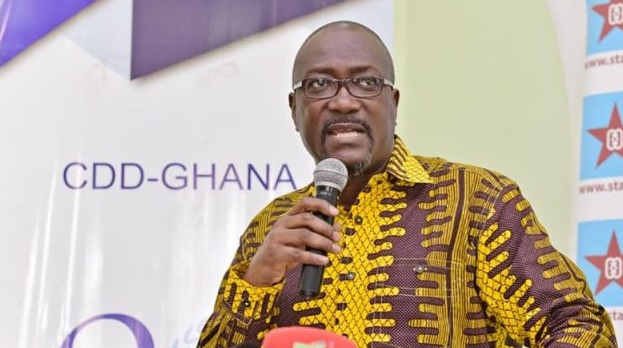Professor H. Kwasi Prempeh, the Executive Director of the Ghana Center for Democratic Development (CDD-Ghana) has questioned the Supreme Court’s decision to shield the Chairperson of the Electoral Commission (EC), Jean Mensa, from testifying in court during the election petition hearing.
The Supreme Court’s decision not to allow Jean Mensa to testify during the case generated divided opinion as some argued that the court was not the appropriate forum to have held the Commission to account for its stewardship.
Prof. Prempeh however argued at a Coalition of Domestic Election Observers (CODEO) post-election workshop that the court itself could have scrutinised the election management body’s role in the election during the petition hearing.
“[On] the issue of the court not requiring the 1st Respondent [Jean Mensa] to answer the interrogatories and also not compelling her to testify, here, the court makes reference to standard rules of procedure. But it should be acknowledged that this is not an ordinary case. Even if the court realised that the EC made an error, the ordinary person had not heard this from the election management body. Why then won’t we get it to say that for itself?”
“This should not be seen as a case of lawyers, by lawyers, and for lawyers. This is more of a political case and should not have been treated as a purely legal case,” he said.
How the court ruled
The National Democratic Congress’ election 2020 presidential candidate, John Mahama, petitioned the Supreme Court following his disagreement with the results declared by the Electoral Commission after the December polls.
Several efforts by Mr. Mahama to have Jean Mensa cross-examined failed to yield the needed results as the Supreme Court insisted that it cannot force the respondent to testify.
“A witness who has not yet entered the witness box to testify cannot, therefore, be called an adverse or hostile witness under any circumstance. The petitioner has not demonstrated to us in any way that the decision of the respondents not to testify which was upheld by this court in its ruling on February 11, 2021, has occasioned any miscarriage of justice,” Chief Kwasi Anin-Yeboah read on behalf of the seven-member Supreme Court panel.
The election petition was eventually thrown out for lack of evidence.
Read Also: We don’t owe eight-month allowances to trainee nurses and midwives – Health Ministry
SOURCE: ATLFMNEWSONLINE

























